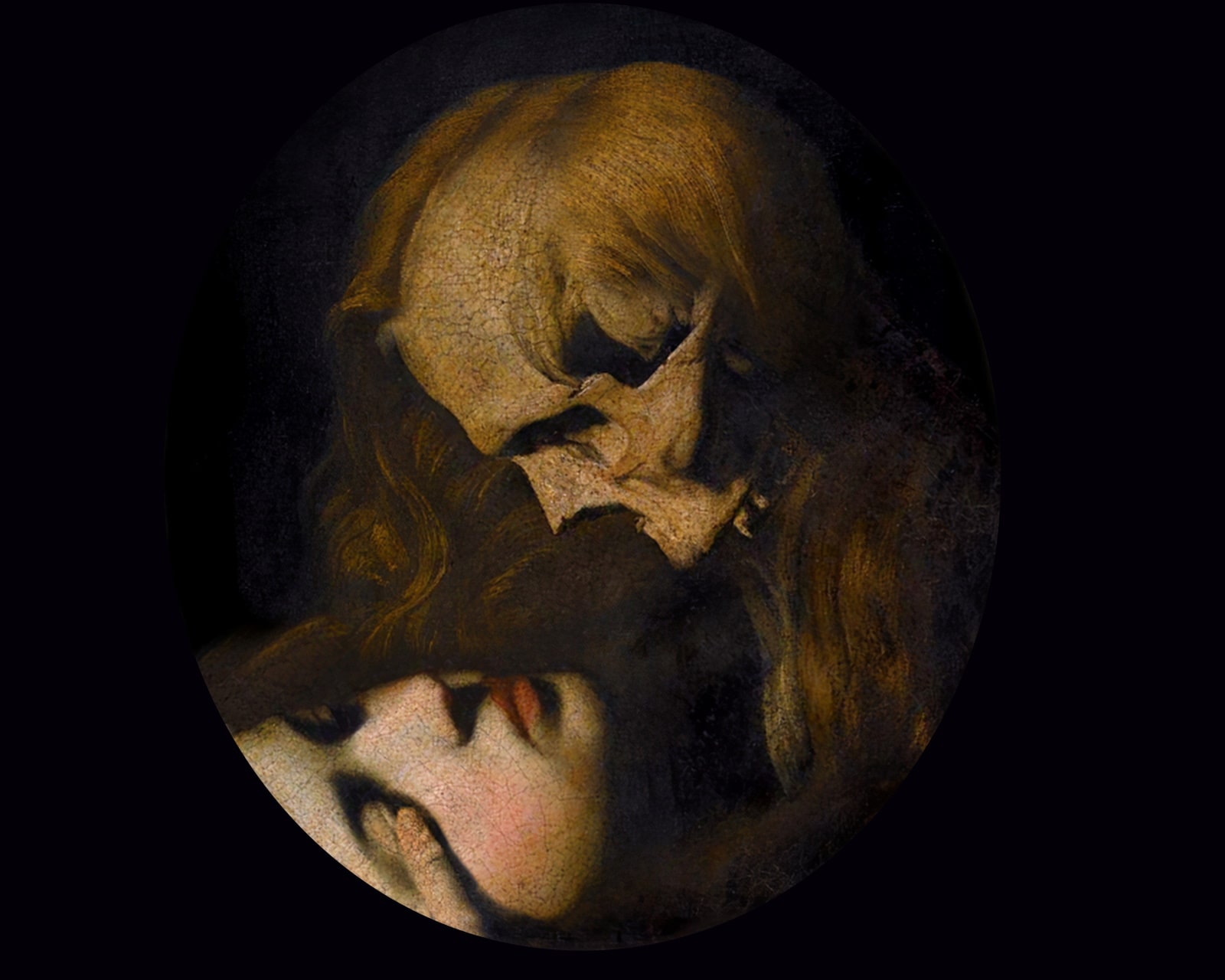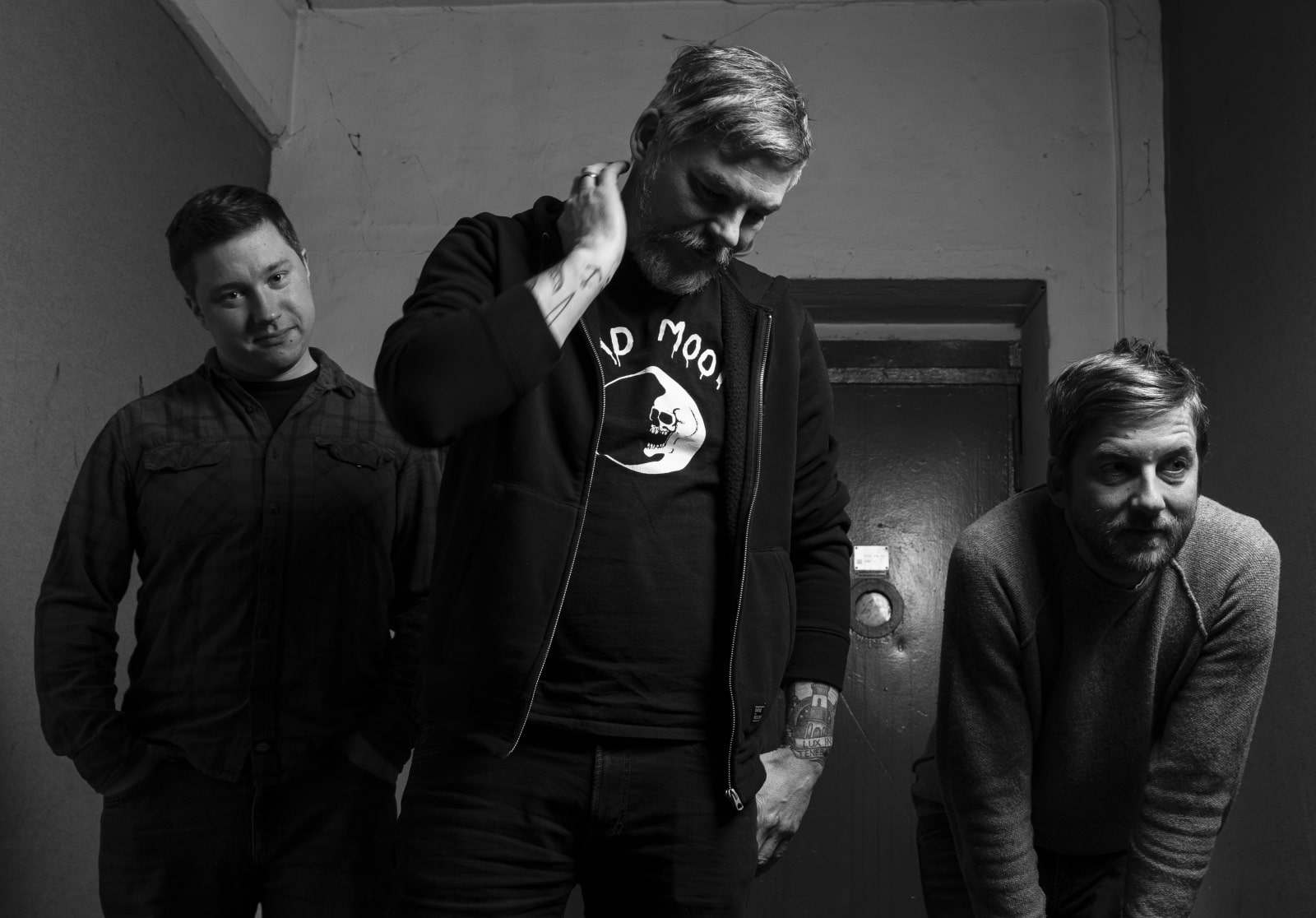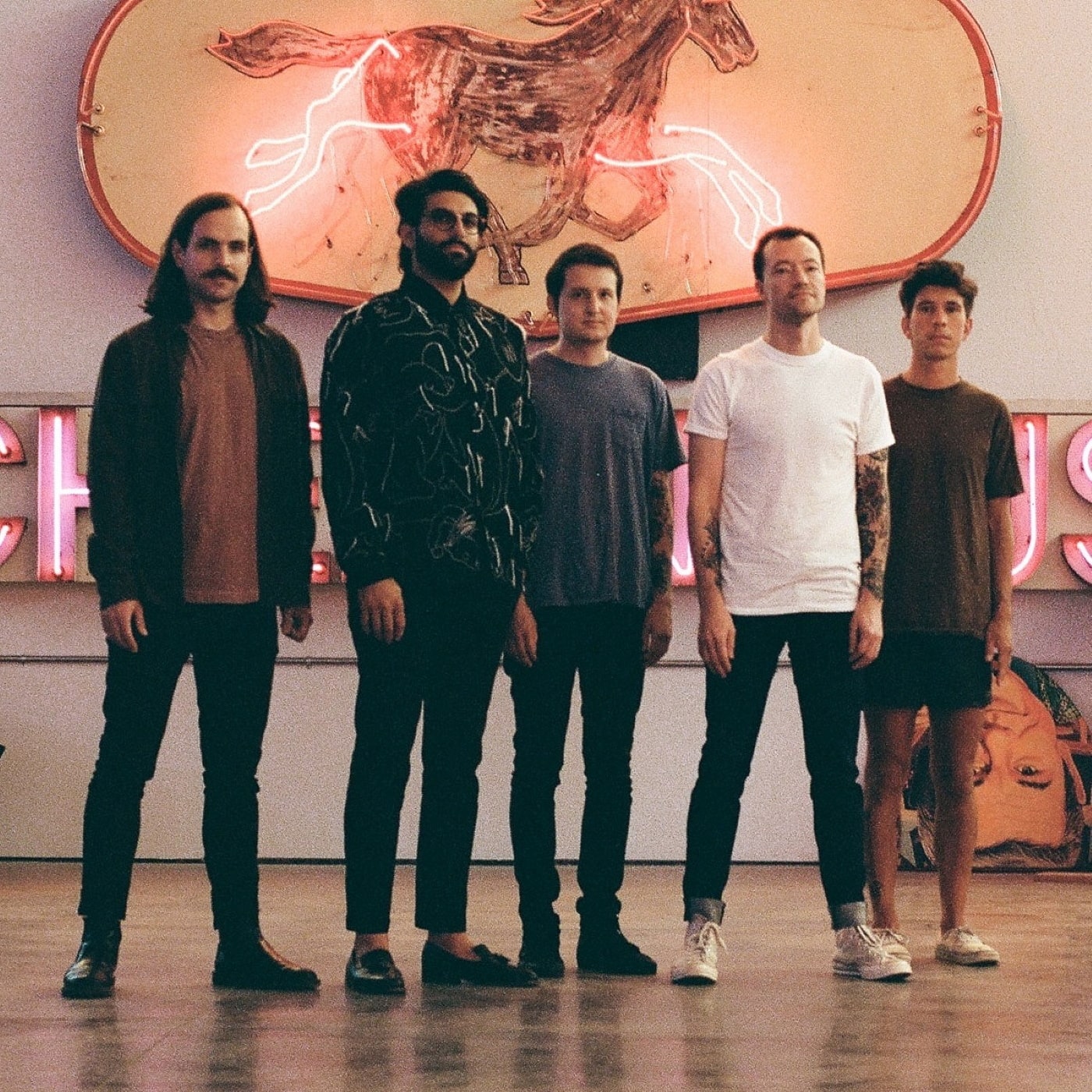LUVENCIE, an electronic project melding hardcore and noise aesthetics, is largely instrumental, often featuring guest vocalists whose voices are resampled and used as instruments. The solo moniker of Shaun Ringsmuth (Glassing, Street Sects) premieres its debut single “Cuffed” today and we’re thrilled to give it a proper exposure with a special Top 10 feature presenting the best Abrasive Artists from Austin, TX worth diving into!
LUVENCIE, by Shannon Nico Shreibak:
Contrary to musical instincts, the sound of longing isn’t always drenched in drone and melancholy. In the case of Luvencie (luh-vin-see), the ache of longing can be heard in fizzling electronics, splintering distortion, and chopped-and-screwed samples. The new project from Austin-based instrumentalist Shaun Ringsmuth wrestles years of personal strife into an ongoing series of collaborative compositions, with members of Elizabeth Colour Wheel, Meth, Glassing, and more contributing vocals.
Ringsmuth’s new artistic persona was inspired by a bedlam of tragedy both within and beyond Ringsmuth’s psyche. Mourning the 2020 Alzheimer’s and COVID-related death of his grandmother Monique Ringsmuth, while also undergoing treatment for rampant body dysmorphia and Bipolar II Disorder, Ringsmuth used the new project as a vehicle for recovery and reinvention.
“Luvencie was the name of my grandmother on my mother’s side,” Ringsmuth explains. “Monique was from my father’s side, and when she died, I began to dream of both women. My brain took memories of Luvencie and blanketed them over Monique’s death to placate my grief. Both Luvencie and Monique, who never met, are a single presence living through me and through this music.”
Luvencie’s compositions are fraught and feverish, a tonation that is immediately recognizable to those familiar with Ringsmuth’s work as one-half of power electronics duo Street Sects. Along with mining inspiration from his creative past, Ringsmuth also immersed himself in his peers’ spheres of influence. Throughout Luvencie’s development, Ringsmuth listened to River Dealer, a whirling EP by enigmatic electronic artist Burial, on a disintegration loop. The EP’s labyrinthian architecture and spellbinding musicianship afforded Ringsmuth a predictable psychic narrative each night, an auditory escape hatch from the throes of grief.
“I chose intense, frenetic music because everything else I wrote was just sad and drenched in reverb,” Ringsmuth says of Luvencie’s creative direction. “The more gripping the music, the more I could take my feelings and turn them into an energy, one that had a start and an eventual ending, a kind of resolution I wasn’t going to get out of the mere grief itself.”
Ringsmuth, a disciple of visual artist Robert Rauschenberg’s work, employed Rauschenberg’s postmodern, collagist approach when crafting many Luvencie arrangements. Instead of patching his own vocals over his frenzied soundscapes, Ringsmuth pooled talent from colleagues in the hardcore and experimental scenes. Vocalists were provided a scratch track and encouragement to express themselves as candidly as possible, whether that was through bloodletting lyrics, spine-chilling screams, or heart-stirring lulls. Once vocal tracks were laid, Ringsmuth plucked each voice from their respective scratch track and cemented them in new, tailormade contexts with the help of splicing and resampling. This approach, while laborious, allowed for the platonic ideal between each contributor’s creative vision and Ringsmuth’s own emotional catharsis.
In his celebrated poetry compendium Book of Longing, Leonard Cohen—another creative bellwether for Ringsmuth—wrote, “On the path of loneliness / I came to the place of song.” When the body and mind are interlocked in the cogs of grief, music may be the only salve to the sores of heartache. Luvencie ventures to prove that no matter how rotten the roots of the past may be, hope—and healing—is still possible.
Top Ten Abrasive Artists from Austin, TX, to Mute a Global Pandemic
1. Easy Prey “L’Appel Du Vide”
Mirroring much of the world, Austin was devastated by Covid-19 in 2020. Downtown streets once filled with intoxicated travelers were now lifeless, with bars shuttered and music venues doomed to permanent closure within six months. Mandatory lockdown led to widespread unemployment. Hospitals filled fast with, at first, the elderly and immune compromised. Death was a daily topic. Grocery stores shortened their hours of business. Greed and hysteria caused people to buy triple the amount of basic goods, resulting in empty shelves for days at a time. Then the gods of war doubled down, and a few months after a cautious, bitter-sweet New Year’s Eve, an unprecedented snowstorm fell that broke the city’s central electrical grid, leaving hundreds without power, food, and water. The year was a test on mental endurance. I can’t think of a more fitting title than Easy Prey’s album, Relentless Struggle. For me, the song “L’Appel Du Vide,” which translates in English to “the call of the void,” recounts the ensuing dread, the terror that had people covering their bodies with masks and gloves, unsure if the virus was transmitted by air, from touch, or mere proximity to others.
2. Deep Cross “Diamond Form”
For decades, Austin has been called the “live music capital of the world.” This is an inside joke now to many of us who have lived here long enough to witness the Silicon-Valley influx over the last ten years, transforming the city into a tech hub. The drastic increase in rent has forced many people in the lower tax bracket to leave. Combine quick economic change with mass job loss from a pandemic and you witness artists seeking asylum in quieter cities. Nevertheless, music is still present and important to those enduring these changes. One of these artists overcoming the odds is Deep Cross. The band is one of many projects by Michael Cockrell, the brain behind the cassette-focused label Somatic Records. He’s given a platform to many local musicians, three of which appear in this top-ten list. Having lived in Austin for eleven years now, I saw the inception of Deep Cross and associated acts, always in awe of their perfect blend of industrial leanings and raw, guitar-driven dirges. In lockdown, I felt the absence of these live gatherings. “Diamond Form,” a track from a split record with Khost, puts me right back in those rooms. Panning synth, layered reverb guitar, sandpaper screams, they open an aural portal, the push and pull of memory.
3. Desist “Consolamentum”
I never took the long-term view of how to live. Growing up, it was all temporal pleasure or imminent outrage. Behavioral problems stacked up, worrying my parents. Misguided best intentions had me run the gamut of meds, from Lithium to Lamictal. Nobody who saw me get drunk that first time at fourteen, finishing four bottles of grape Mad Dog 20/20, would be surprised to learn that I kept guzzling for eighteen more years. The sum of my twenties was bar tabs on credit, unrecoverable trust in relationships, and total humiliation in front of peers. As of today, I am five years sober. This transformation has been my Consolamentum, my own version of psychic healing and reform. Listening to Desist, in the year of hopeless boredom and isolation, I became enveloped by the darkness of my past. Their music is sludgy, metallic stabs of pure feeling.
4. Blank Hellscape “Thoughts”
If left alone without distraction, my thoughts shift to anger about my past, internalizing perceived wrongs until I can exit that dangerous neighborhood of the mind. Blank Hellscape’s “Thoughts,” perfectly translates this mania. It’s a car crash, a sports’ cry, and a shopping spree all at once. Extreme music like this cancels plans. To-do lists are forgotten by the immediacy, the inescapable threat. The few performances I’d seen of them were wild. Gear was everywhere, pedals and samplers and wires. The rooms were dimly lit, energetic with screaming and modulated distortion. This track hit my ears on yet another imperfect day. A few months into the mess, I took to having energy drinks delivered to my house by the caseload, caffeine abuse being the last refuge for many alcoholics. I was doing everything I could to keep my spirits up, riding the brief highs until the inevitable lows of forced enclosure. Blank Hellscape matched the tempo of my anxiety.
5. Impalers “Variety
Human contact became limited to text and video chat. Opening and closing apps always got back around to the news, which reported how hospitals were nearing max capacity, with few remaining ICU beds and ventilators. There was no end in sight. Time passed and funds dwindled, so I submitted an online form for unemployment. Within minutes I realized a great portion of the city had done the same. Day and night, I was calling the Texas Workforce Commission. Time was frozen. It felt like the same day, the same night, the same hour, and the same complaints. A freak out was incoming. The Impalers’ music ran parallel with my tension. “Variety” was the top floor of the neurotic tower, a pressurized skull soon to blow apart.
6. GoodEye “BodySoup”
One of the ways I’ve always relieved stress is aimless night driving. Being confined, unable to go places on a whim, these trips became especially important. The music I chose by evening was a cooler shade. It had to be a steady rhythm to fit the long empty highway. “BodySoup,” released in 2021, would have been perfect. The head nodding, mid-tempo stride gallops like Queens of the Stone Age. The vocals, to my ears, create a lo-fi early Silverchair, minus the bluesy inflections. This is new medicine for lovers of ‘90s grunge.
7. Communion “Vice Redeemer”
Self-talk in isolation took on a new low. The inner critic overpowered my ability to read. I couldn’t write down my thoughts without spacing out, eventually losing the thread of every sentence. Nights were spent eating junk food. Only sugar seemed to be able to penetrate through the fog. I stuffed myself until my body ached more than my mind. I needed help. At the same time, I resisted help, thinking I had no right to complain while people were dying in almost every country. However, personal pain is local, and no amount of rationalizing changes things for the better. In so-called normal times, common advice is to heal oneself first before attempting to heal others. There’s a great boredom in self-pity. Not everything happens quickly. “Vice Redeemer” is a thirteen-minute epic. It’s an ecstatic slow burn. Melodic leads fall into sustained fuzz, corridors that give space to think.
8. portrayal of guilt “My Immolation”
New Year’s passed, feeling as celebratory as a crowd cheering on a guillotine execution. As artists began hesitantly, somewhat hopefully, releasing their records, here came POG’s We Are Always Alone, twenty-six minutes of lightening across the sky.
“The house fills with gasoline, with every memory I’ve ever known / I light the match and realize I am alone.” The lyrics on “My Immolation” became a solemn mantra for me. The voice sounded like the very demon I had come to know the previous year. “This is where I belong.” Yes, there it was. That was me inside the echo chamber. When this record dropped, I listened on repeat. I mean that literally, not as an expression. I set the record on loop while out on my day job as a delivery driver, a position I had taken out of financial desperation and also seeing the benefit of it not requiring much human contact. All band income was a non starter. Tours had been canceled and product sales were down. We Are Always Alone provided a highway for my jagged inner narrative. I saw the months of exasperation. I saw the days where I didn’t bother to get out of bed. I saw how twice without warning I had stopped taking my meds, dodging calls from my psychiatrist and scaring those closest to me. I saw all that, but I saw it the way one looks at a painting in a gallery, reading the description on a little card to better understand its context. The ability to pause and analyze took hold. This song gave me relief, with its short sprints and noisy interludes, with its intuitive drumming. Depression, as I’ve come to know it, has many layers, from inner silence to agonizing wallow. This album occupies a special bleak place in my head.
9. Glassing “Lobe”
They are often a sound engineer’s nightmare, the band loud and wailing, largely due to the guitarist’s stacked mass of Worshiper cabs. At a show in December 2019, as the band crashed in with their first song, I had the sick pleasure of witnessing a scramble for earplugs, including people at the back of the venue near the merch tables. Feedback pierced between the chords, the band taking little notice of the ensuing pain. They pummeled with songs from the album they released that year, Spotted Horse, eventually reaching an undeniable banger mid-set. “Lobe” proved itself a crowd-pleaser, with emotive driving riffs, and the vocalist belting upper register screams, calling to mind the legendary post hardcore band Portraits of Past. When Covid-19 vaccines made the rounds in Texas, people were quick to get together. For many of us this felt too soon, but prolonged loneliness gave the courage to gamble. Post vaccination, I was one of those who was willing to try my luck. Glassing invited me to perform in a filmed cover of the Cure’s “One Hundred Years.” This was for Metal Injection’s online mosh pit called Slay at Home Fest. They sent me a video of them playing the song. I took out a synth and practiced along with my laptop, wondering if I’d actually feel safe being unmasked. As of that moment, I hadn’t taken off my mask around anyone who wasn’t in a safety net of limited exposure. Being in a room with these guys was the first face-to-face interaction in more than a year for me. I felt overwhelmed by gratitude and sadness. I could have cried. Before me, as if projected onto a theater screen, was the ghost of 2020, a historic year of despair that killed many people, including my grandmother, Monique. These facts were temporarily muted, and that old familiar thing of funny irritations at mistakes and band wisecracks returned, as if they never left.
10. Exhalants “End Scenes”
I was watching Exhalants play at an outdoor house show. It was a classic Texas scene, brutal heat and dust clouds. A mosh pit started, everyone in the weather oven at nearly 100 degrees. The realization that I was at a show, standing in an actual crowd, came every five minutes. This was July, 2021. This was before the Delta Variant began making headlines, lightly tapping the breaks on a full reopening, at least in the U.S. I looked around me and saw pure joy. Seeing a performance in Austin pre-pandemic was often a take-it-or-leave it decision. Events happened every week. A band that toured regularly was bound to stop in again. Having this luxury removed for over a year, it gave this gathering a welcomed new energy, a feeling of ascension. For many in attendance, myself included, it was the first music-related outing since cancellation. “End Scenes” represents this positive moment for me. Angular guitars, fast-paced bouncing rhythms, somehow Big Black, Sonic Youth, and Unwound all at once. Immersed in riffs from the Exhalants’ catalogue, many from the stellar, newly released album Atonement, I felt overwhelming optimism. Too soon we would find out that the virus was sticking around, that our cohabitation with it was indefinite. However, any thought about the recent past or dismal future was temporarily unimportant. They were killing it.











